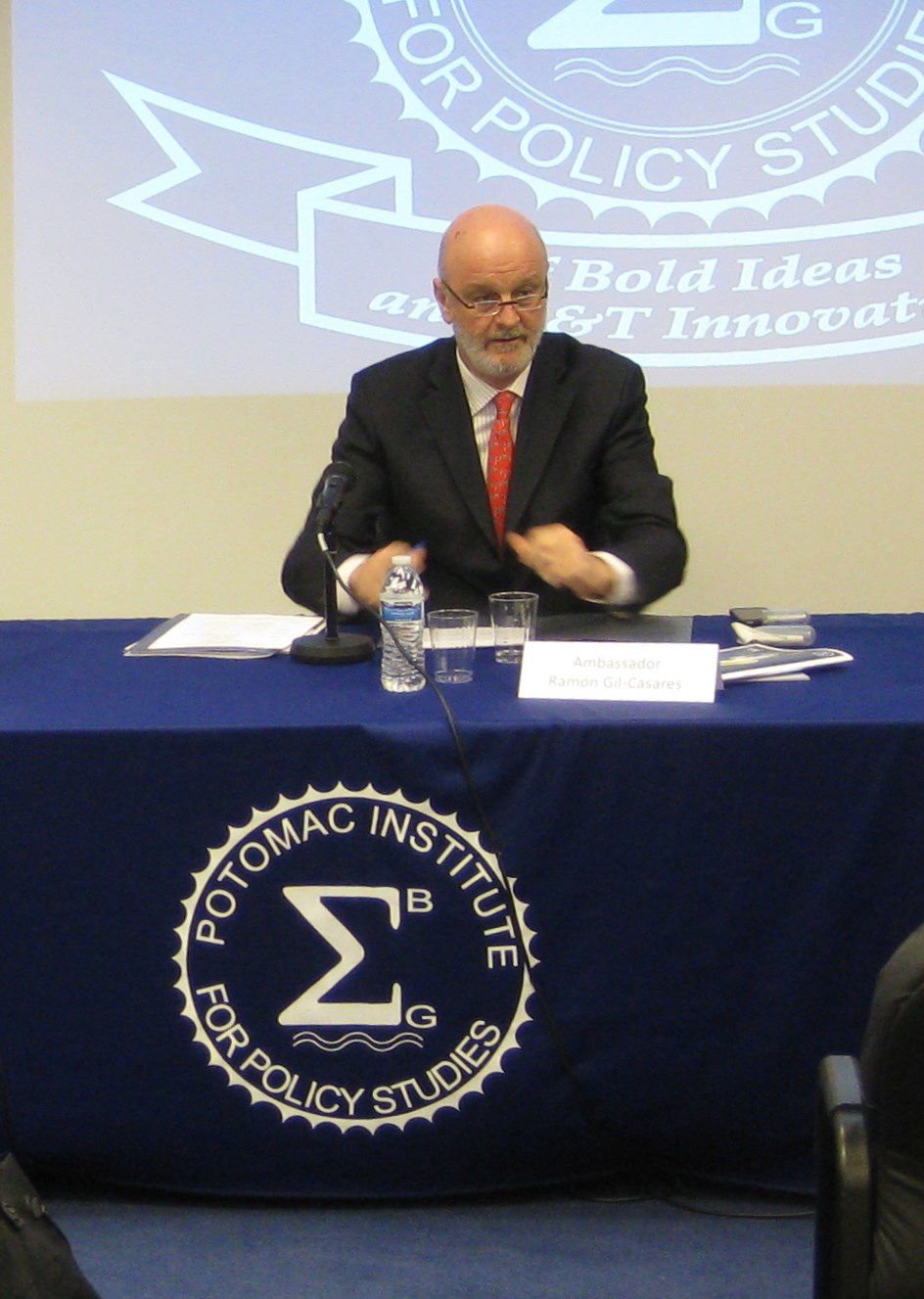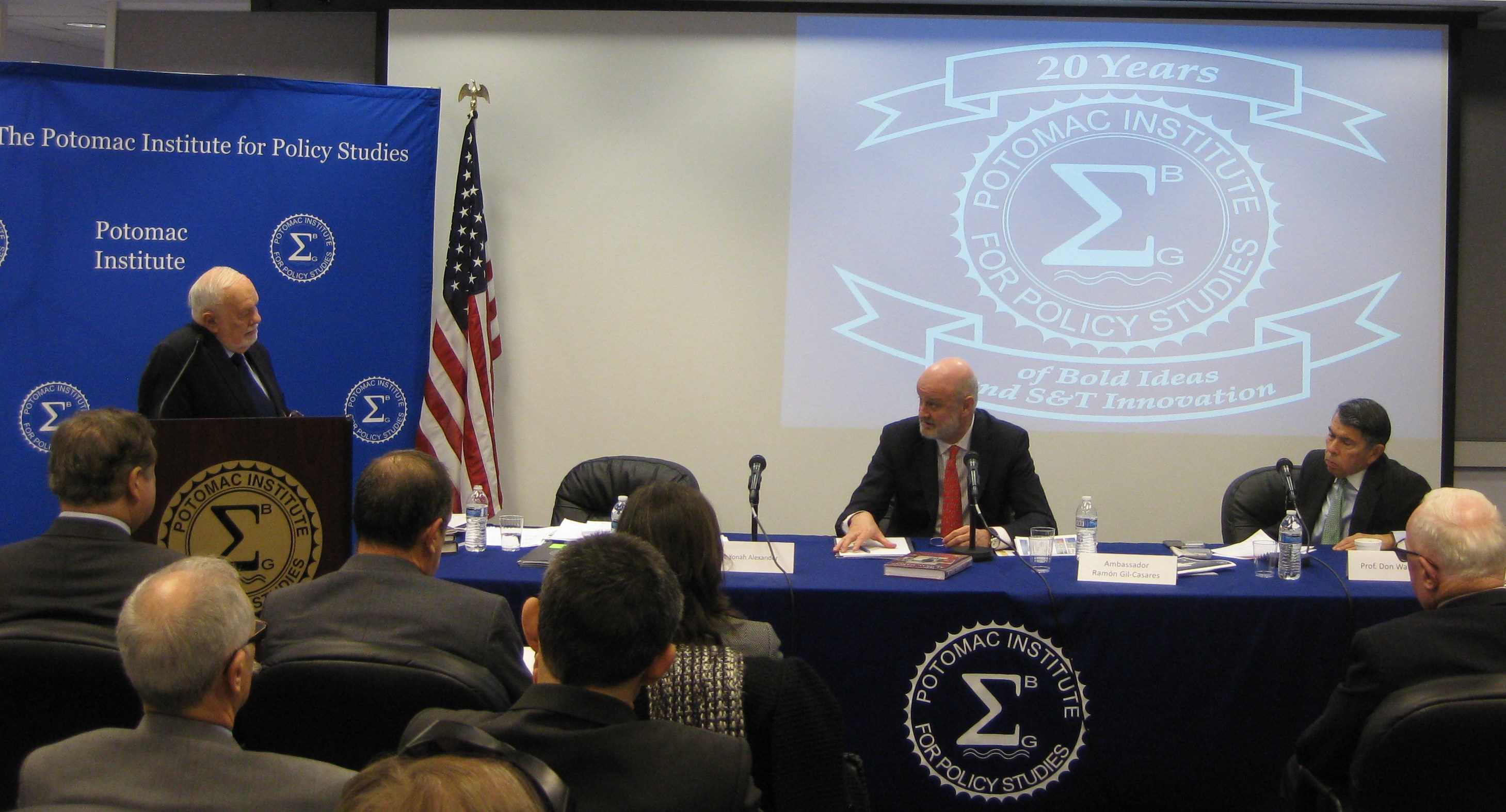Spain's Ambassador Uses His Country's Struggle Against ETA as Example of Importance of Collaboration

For almost 40 years Spain has been victimized by domestic ETA violence. In 2004, Al Qa’ida perpetrated a devastating terrorist attack in Madrid.
Ambassador Ramón Gil-Casares, Ambassador of Spain to the United States of America, discussed both the threats and responses, particularly focusing on Spain’s contributions to security concerns nationally and globally.
Sending military troops abroad and concerns for domestic issues may fuel temptation to consider some terrorism as worse than other terrorism, but Amb. Gil-Casares asked the audience to consider Spain's fight against ETA, a Basque terrorist group -- "once considered not so bad."
Marking almost five years since the last assassination by ETA, Amb. Gil-Casares said Spain couldn't have defeated ETA without international cooperation, and he acknowledged the help of the United States even before 9/11.
Spain's comprehensive strategy against ETA included collaboration with friendly nations in the region, as well as NATO and EU. But Spain did not neglect the fight against other forms of terrorism.
Prof. Yonah Alexander, Director, Inter-University Center for Terrorism Studies, and Senior Fellow, Potomac Institute for Policy Studies, commented that a contributing factor to the terrorism challenge is the network of terrorist groups -- or international cooperation on the part of terrorists. He also acknowledged the role of technology as a battleground of ideas. Prof. Alexander moderated the event.
 Gen. Al Gray, USMC (Ret.), Chairman of Potomac Institute's Board of Regents and 29th Commandant of the U.S. Marine Corps, observed that on of the primary lessons in battling terrorism is the need for education of people. Guerillas and terrorists depend on violence and need support of local people. Education can prevent that.
Gen. Al Gray, USMC (Ret.), Chairman of Potomac Institute's Board of Regents and 29th Commandant of the U.S. Marine Corps, observed that on of the primary lessons in battling terrorism is the need for education of people. Guerillas and terrorists depend on violence and need support of local people. Education can prevent that.
Ramón Gil-Casares was appointed Ambassador of Spain to the United States of America in April of 2012, after serving as Ambassador to Sudan and South Sudan. Previously, he served in Equatorial Guinea, Uruguay, Manila and New York. In addition, he held diverse positions including Ambassador at Large for Africa, Director of the Department of International Affairs and Defense, and Secretary of State for Foreign Affairs. From September 2004 through March 2005, he worked at the German Marshall Fund in Washington DC.
Co-Sponsors of the event included:
- Inter-University Center for Terrorism Studies
- International Center for Terrorism Studies, at the Potomac Institute for Policy Studies
- Inter-University Center for Legal Studies, at the International Law Institute
- Center for National Security Law, University of Virginia School of Law
